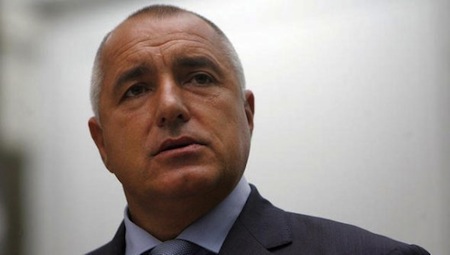The inestimable Edward Hugh wrote over the weekend that Bulgaria’s major political crisis is really the fact of its depopulation — he identifies the loss of 1.5 million Bulgarians as the primary policy problem facing Bulgaria (and much of Eastern Europe and the economic periphery of Europe) in the coming years, cautioning that we should be pessimistic about rosy GDP growth estimates for Bulgaria of 3% or 4% after 2014:![]()
It is hard to see how you can get serious retail sales growth in a population that is shrinking so rapidly. The end result is that the economy grew steadily into the global crisis, and subsequently has stagnated. This stagnation isn’t simply conjunctural anymore, it has become structural, as the decline in domestic demand associated with ongoing deleveraging and population ageing and shrinkage precisely offsets the positive impact of all that export growth.
So as we think about the recent resignation of Bulgaria’s government in advance of what were supposed to be summer elections (now more likely to be spring elections — Borissov has been unable to convince opposition parties to support a short-term interim coalition government), it’s important to keep that aspect in mind, especially in light of an electorate that seems incredibly disengaged by either the left or the right in Bulgaria. His government now returned his mandate to form a new government, and the center-left opposition is expected to follow suit, precipitating what is very likely to be springtime parliamentary elections in Bulgaria, a country of 7.5 million people bordering Turkey, Greece and the Black Sea on Europe’s peripheral southeast.
Boyko Borissov (Бойко Борисов) came to office nearly four years ago following a rout by his center-right Citizens for European Development of Bulgaria (GERB, Граждани за европейско развитие на България), a relatively new iteration of Bulgaria’s major conservative party that won nearly 40% of the vote and took 117 seats in Bulgaria’s 240-seat, unicameral National Assembly (Народно събрание). Borissov (pictured above) and GERB defeated the center-left Bulgarian Socialist Party (BSP, Българска социалистическа партия), led both then and now by Sergei Stanishev, Borissov’s predecessor as prime minister from 2005 to 2009.
Borissov, a former mayor of Bulgaria’s capital Sofia, was once seen as an earthy and decisive leader that Bulgarians turned to in hopes he would reduce corruption and jumpstart the economy. Stanishev, for his part, was once praised for his role in bringing Bulgaria into the European Union in 2007. But like many countries in Europe following the 2008-09 global financial crisis and subsequent eurozone crisis, the country has now suffered through both a center-right and center-left government, each of which has been relatively powerless to reinvigorate growth. The result is that Bulgarians are disillusioned with both Borissov and Stanishev.
Bulgaria’s unemployment rate stands at 12.4%, and its GDP growth has been tepid for the past five years — 1.7% in 2011, an estimated 0.5% in 2012, and is estimated to grow just 1.4% in 2013.
Unlike in many countries, Bulgaria doesn’t have huge public debt issues — its budget deficit was just 1% of GDP in 2012 — as Hugh notes:
Having said that, the country’s government debt at under 14% of GDP is incredibly low, so there is room for flexibility, if it wasn’t populist flexibility. The real issue is that simply spending more this year, or next, won’t fix the underlying problem, and that problem is unlikely to be addressed until it is recognized as a problem by the institutions responsible for economic policy formulation.
That means, in the short-term, Bulgaria seems insulated from the need to institute incredibly deep austerity measures that could crimp domestic aggregate demand, thereby exacerbating Bulgarian growth, though Borissov’s government has implemented all-too-familiar wage and pension freezes as well as tax increases.
More immediately, the cause of the latest government crisis has been protests over higher fuel costs, prompting popular calls for the nationalization of the electricity industry in Bulgaria, and prompting Borissov to pick nationalist, populist fights with the Czech Republic (tiny Bulgaria can hardly pick a fight with Russia, for example, from which it imports 90% of its natural gas). With a GDP per capita of around $14,000, it routinely competes with its northern neighbor Romania as the poorest member of the European Union.
Borissov has advocated imposing penalty fees upon ČEZ Group, the Czech company that’s also the largest utility in Central and Eastern Europe, which has already sparked a diplomatic tussle between Prague and Sofia, and which could sound alarm bells for potential investors in Bulgaria:
If pushed through, the fines for ČEZ and two other foreign-owned firms will not encourage other investors in Bulgaria, who already have to navigate complicated bureaucracy and widespread corruption and organised crime to take advantage of Bulgaria’s 10-percent flat tax rate.
Albania, which remains outside of the European Union, last month revoked ČEZ’s permits to distribute energy, and a fair share of Bulgarians would like to follow Albania’s lead.
In a Mediana poll released on February 15, both GERB and the Bulgarian Socialists seem to have slumped: the Bulgarian Socialists lead with an anemic 22.5%, and GERB would win 19.3%, with a significant number of voters undecided. Both Borissov and Stanishev have approval ratings of just 29%, underlining just how unpopular both options are to rank-and-file Bulgarians.
Hugh’s solution is supranational. Continue reading Bulgarian electorate unenthusiastic about both major parties as elections loom
